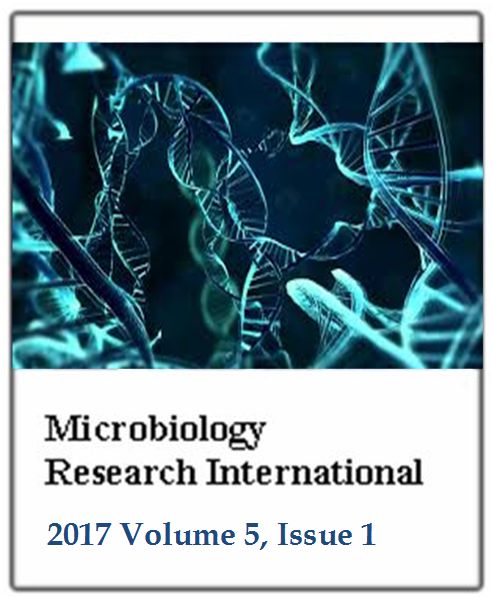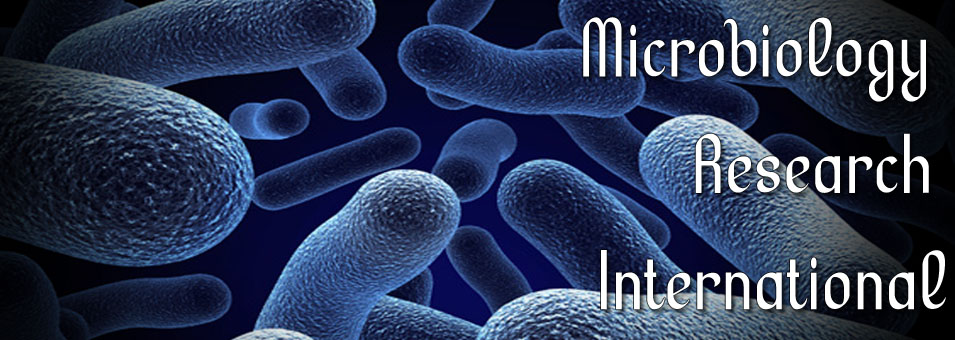A mini-review on the development and emerging perspectives of seed pathology
Ebimieowei Etebu and Akagbuo Barth NwauzomaMicrobiology Research International
Published: January 4 2017
Volume 5, Issue 1
Pages 1-7
Abstract
Seeds are the means of propagating about 90% of all food crops in the world, and they significantly influence yield potential in crop plants. Moreover, seeds are adversely affected by a number of factors such as postharvest and storage disease pathogens and unfavourable environmental conditions. Seed-borne pathogens represent a major threat to crop establishment and yield. Exposure of seeds to disease pathogens and other adverse conditions disrupts their normal physiology and metabolism which ultimately affects productivity. It is therefore imperative to promptly diagnose, treat, prevent and control seed related diseases. As with every other sphere of scientific studies, seed pathology has evolved tremendously over time; hence in this paper the development and emerging perspectives of this all important discipline was reviewed. Pathogen exclusion by detection and elimination of infested seed lots is required for disease management but traditional and conventional measures such as visual examination, use of media culture and serology are inadequate to detect pathogens associated with seed. In contrast, Nucleic acid-based molecular tools, such as the polymerase chain reaction (PCR) have emerged as faster and more reliable means for detecting and quantifying pathogens in seeds than conventional techniques.
Keywords: Seed pathology, diagnosis and control, polymerase chain reaction.
Full Text PDF
